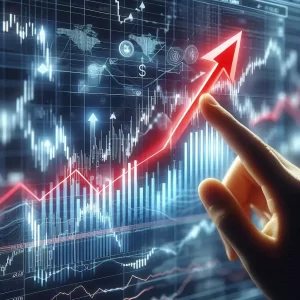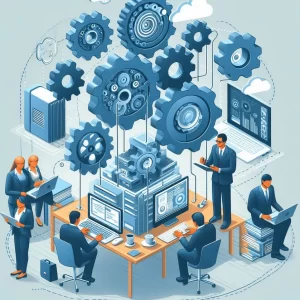Are Corporate Buybacks Good or Bad for Investors?
Buybacks take a long time, it is not something that occurs in a week or two, or even a couple of months. It usually it is a couple of years. If the date of the buyback announcement is studied along with the following year or two of buyback activity, the charts do not confirm most of the time that buybacks increase stock values. Some stocks move up, some decline. There is not much correlation between a buyback period and the price value. Yes, there are exceptions of course. If a company buys back shares of stock too quickly, it can cause a stock price to increase due to its purchases and due to the decline in outstanding shares. This is a rare situation.
Most of the time, buybacks are considered poorly timed to stock prices as often the company buys into new higher prices. This is what Dark Pools try to avoid with their purchases. Many dividend investors wonder why a company spends profits to buy back its shares of stock. Many analysts wonder if buybacks create inflated P/E ratios. Retail traders wonder if buybacks cause sudden spikes or gaps in price.
Here are some basic facts that few investors and traders know about the internal operations of a company buyback, and the main reasons buybacks are becoming more commonplace right now as our economy is expanding.
Corporate profits are used for paying investor dividends. Corporate profits have been rising for several years now. Corporations can also use profits for investing in new technology, buying other smaller firms, or investing in the company infrastructure all of which have been occurring in the past couple of years in many industries. However a corporation must also manage its outstanding shares of stock. It must make sure that the stock value continues to rise, that there are not too many shares or too few shares outstanding. If you haven’t noticed, stock splits have been rare since 2000. Companies like GOOG, AAPL and others did not split shares as the stock value rose.
Buying back shares of stock occurs when the Board of Directors deems it necessary or useful to the growth and stability of the company. Stock buybacks are an alternative to paying a dividend. A buyback lowers the number of outstanding shares which immediately increases the earnings to shares ratio.
Dividend investors are often angry when they hear that the dividend was not raised but rather the company has announced a buyback. There are times when paying higher dividends can be harmful to the future growth of the company. What is not understood is that the investor who is holding stock as a dividend income-generating stock actually is receiving a higher dividend because there are fewer outstanding shares, which raises the earnings per share valuation. The company benefits because it doesn’t have to pay double taxation. By buying back shares of stock, the company can actually be distributing more earnings to the investors without a tax liability. Corporations must pay taxes on all dividends they pay out. Investors must pay taxes on all dividends received. A buyback does not have such a tax liability.
Stock buybacks are used for a variety of reasons. Until November of 2013, Large Cap Fund investing saw a continued outflow of monies as investors sold Large Cap Funds for a straight 54 months in a row. This is also part of the reason for the recent buybacks, other reasons are hostile takeovers and Leverage BuyOuts LBOs. Many firms experienced hostile takeovers or LBOs during the 80’s at a time when corporate profits were at an all time high, profits were expected to continue soaring, and debt was extremely low for many big blue chip companies. This scenario was the cause of many LBOs. Companies were undervalued, making many easy targets.
With this historical fact and many corporations not in a strong position financially, we are also seeing how easily companies like DELL are turned private. Boards of Directors are also shoring up their shark attack strategies. Buybacks of weaker firms like YHOO make excellent sense. Any firm at risk of LBO, a hostile takeover or hostile merger, or being forced to go private is likely to start buying back shares of stock if it can afford to do so.
Companies with excellent profits also face the unpleasant prospect of having dividends go up and up, which at some point will not be possible to continue. Disappointing investors with a lower dividend is never a prospect any Board wants to have to do. Rather than increasing dividends directly when profits rise, corporations can alternatively buy back shares and give a boost to the earnings per share which still benefits their investors. This way they avoid raising dividends too often and too much, avoiding a dividend drop dump by investors. Fickle investors do cause Board decisions that may not always make sense to the average investor.








